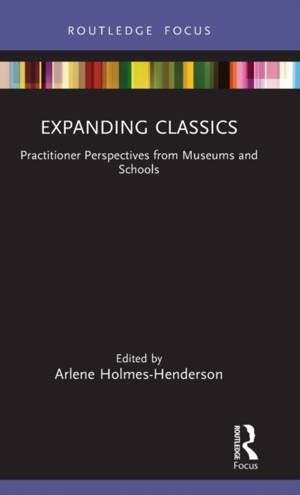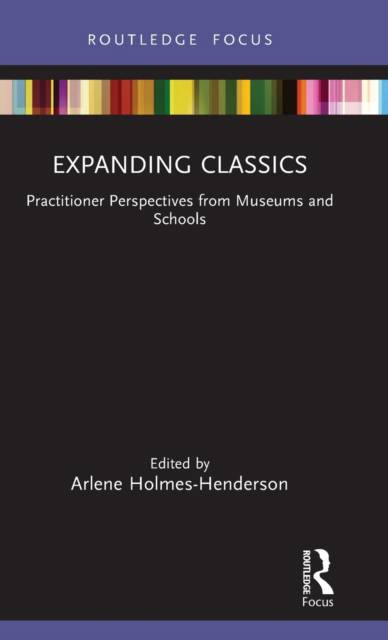
- Afhalen na 1 uur in een winkel met voorraad
- Gratis thuislevering in België vanaf € 30
- Ruim aanbod met 7 miljoen producten
- Afhalen na 1 uur in een winkel met voorraad
- Gratis thuislevering in België vanaf € 30
- Ruim aanbod met 7 miljoen producten
Expanding Classics
Practitioner Perspectives from Museums and Schools
Omschrijving
This volume explores innovative ways of expanding classical languages and cultures to educational and museum audiences.
It shows that classical subjects have an important role to play within society and can enrich individuals' lives in many different, and perhaps surprising, ways. Chapters present projects covering literacy and engagement with reading, empowering students to understand and use new types of vocabulary, discovering the personal relevance of ancient history and the resonance of ancient material culture and stories. Contributors demonstrate that classical subjects can be taught cost-effectively and inclusively by non-specialist teachers and in non-traditional settings. In their various ways, they highlight the need to rethink the role of Classics in twenty-first-century classrooms and communities. Recommendations are made for further development, including ways to improve research, policy and practice in the field of Classics education.
Expanding Classics presents an important series of case studies on classical learning, of interest to museum educators, teacher trainers, school leaders and curriculum designers, as well as those teaching in primary, secondary and further education settings in the UK and worldwide.
Specificaties
Betrokkenen
- Uitgeverij:
Inhoud
- Aantal bladzijden:
- 132
- Taal:
- Engels
- Reeks:
Eigenschappen
- Productcode (EAN):
- 9781032021140
- Verschijningsdatum:
- 18/04/2023
- Uitvoering:
- Hardcover
- Formaat:
- Genaaid
- Afmetingen:
- 140 mm x 216 mm
- Gewicht:
- 317 g

Alleen bij Standaard Boekhandel
Beoordelingen
We publiceren alleen reviews die voldoen aan de voorwaarden voor reviews. Bekijk onze voorwaarden voor reviews.










